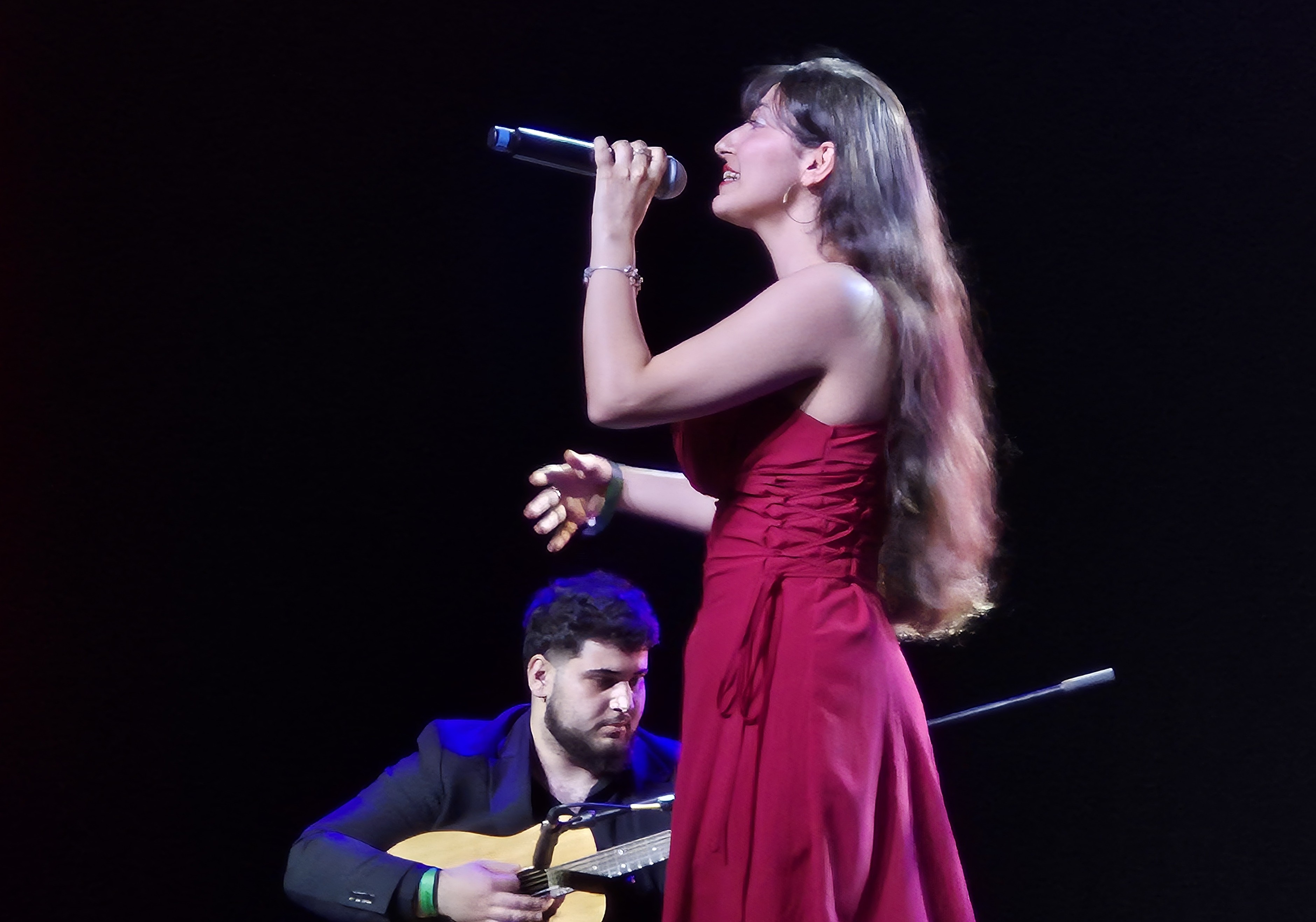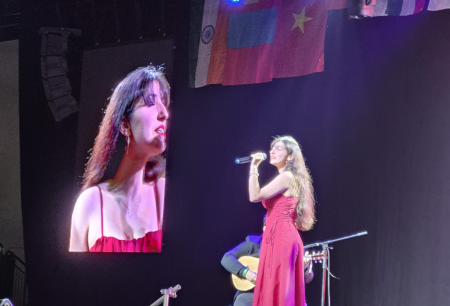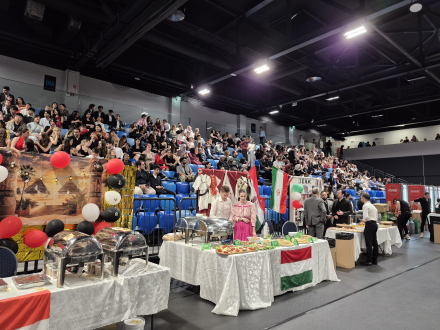and Social Studies

Myriam Hage was performing on the International Cultural Evening, an event celebrating global diversity through music and art. As a Lebanese physiotherapy student, Myriam’s performance was a heartfelt tribute to her heritage, using music to express her country’s resilience and identity.
- Please introduce
- My name is Myriam Hage. I’m 21 years old, Lebanese and I’m studying Physiotherapy at the Faculty of Health Sciences and I’m currently in my 3rd year.
- Do you have professional plans for after graduation?
- I’m planning to do an internship in the UK or Germany. And then hopefully get a full time job back in Dubai where my family is currently residing.
- What inspired you to participate in this International Cultural Evening?
- I noticed that there weren’t many Lebanese students at the university compared to other Arab cultures, and I wanted to feel represented in some way. So, I decided to apply, along with one of my Lebanese friends and a friend from Syria.
- Why did you choose to perform a song, and what does music mean to you personally?
- Lebanon is well known throughout the Arab world for its music, as well as for its artists and songs.
Many of the people who follow me on Instagram and see the short singing covers and guitar clips I post encouraged me to try performing for ICE.
I’ve been singing since I was a little girl — whether in the church choir or alone in my room, it’s always been something I truly love.
There aren’t many things I feel I’m particularly good at, but singing is one of them.

- What song did you perform, and why did you choose that particular piece?
- We performed three well-known songs.
The first was by Fairuz, one of the most iconic Lebanese singers. The song, Kan Ena Tahoun (“We Had a Mill”), reflects on Lebanon’s countryside and childhood memories — singing in the streets and watching our grandparents farm.
The second was Shou Helou (“How Nice”) by Ziad Bourji. It’s about the sweetness of first love, the joy of admiring someone you care deeply for.
The third was Lebnani (“Lebanese”) by Assi El Hallani. It’s a patriotic song that celebrates the pride of being Lebanese, highlighting the hardships we face as a country and the values that define us—endurance, tolerance, and kindness.
I think these songs truly represent Lebanon. They’re all widely known, deeply loved, and carry powerful messages about who we are as a people. We felt like these showcase the true essence of our country.
- How did it feel to represent your culture on stage in front of an international audience?
- It felt both heartbreaking and deeply fulfilling. We were so grateful for the opportunity to do what we did. The entire time I was on stage, I was praying that I could make my country proud.
There are so many challenges and hardships—so much that we Lebanese, along with others across the Middle East, have endured and lost. The political and social circumstances we face are often more difficult than words can express.
And yet, the fact that we were able to stand there and sing these songs made me feel that, despite everything, our identity and our love for our country remain unshaken. That spirit will never be lost.
- Did you have any challenges while preparing for the performance?
- We faced some challenges when it came to scheduling rehearsals, especially with classes and exams, but overall, everything went smoothly.
My bandmates, Wissam and Zain, are close friends of mine outside the group, so the chemistry between us was always natural and strong.
- How was the audience’s reaction, and what moment stood out the most for you?
- From the very start of the performance, the entire right side of the audience was singing along and clapping nonstop. It was so heartwarming to see that kind of support—it truly helped ease the nerves.
It felt like I had a family behind me. People turned on their phone flashlights, and someone in the crowd was even waving the Lebanese flag. It was such a powerful and emotional moment.

- Have you performed in similar events before, or was this your first time?
- I’ve performed on stage before, at various events, including the GTK talent show last April at Agora, as well as in front of friends at casual onstage events and through online reels on my Instagram.
- What do you think is the importance of cultural exchange through music and art?
- I believe it’s essential to showcase the diversity of music across different countries. It’s not just about music in another language—it’s much more than that. It’s a story, a piece of history, an expression of identity. That, in itself, is a gift that should be shared.
- Is there a message you'd like to share with others about your culture or your experience?
- There are many misconceptions and stereotypes about Lebanon and Arab countries in general. But despite all of that, a country is defined by its people—it’s about what they stand for. I wanted to let people know that, even though we may be small in size and not well known to many, we are not a people to be underestimated or looked down upon. Despite facing one political challenge after another, struggling to survive as a country, a Lebanese person will always smile through adversity, always extend a helping hand when needed, and give everything we have—even to an enemy. We are a resilient nation, filled with humble and tolerant people.
Imola Prokes